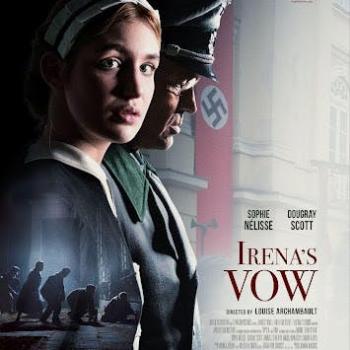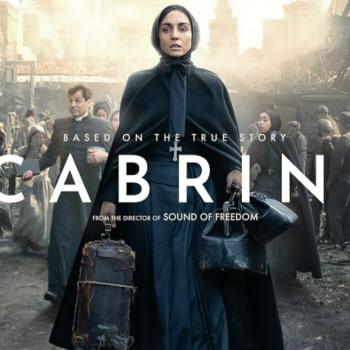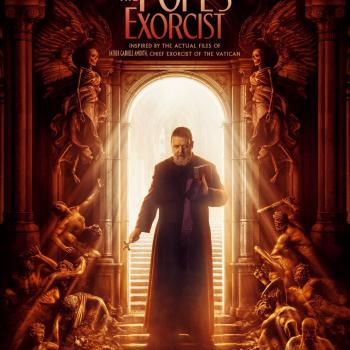On November 9, 2002, I began my essay on Bowling for Columbine: White Men with Guns
http://www.daughtersofstpaul.com/mediastudies/reviews/index.html
thus:
“The massacre of April 20, 1999 at Columbine High School in Littleton, Colorado affected our national psyche very deeply. Eric Harris’ and Dylan Klebold’s actions that day remain mysteriously or at best unsatisfactorily unexplained by a hodgepodge of accusations and ideas. I found Michael Moore’s haunting, ironic, and pseudo- documentary as a means to explore and examine the culture that would allow the killing of one’s fellow students, teachers and themselves to make sense.”
The terrorist attack on the World Trade Center in New York on September 11, 2001, affected our national psyche very deeply. Osama Bin Laden’s actions that day remain mysteriously or at best unexplained by a hodgepodge of accusations and ideas. In Fahrenheit 9/11 Moore spends most of the documentary drawing a web of connections between the Bush family’s financial activities and the Saudi’s and then the industrial/financial beneficiaries of this war – of all war. And he returns to his native Michigan to show how the poor are being recruited to fight this war – all war.
The US invasion of Iraq on March 19, 2003, continues to affect our nation’s psyche very deeply. President George W. Bush’s decisions, rationale and actions that day remain mysteriously or at best unexplained by a hodgepodge of conflicting statements and lack of transparency. I found Michael Moore’s satirical, cynical and chilling psuedo-documentary Fahrenheit 9/11 a means to look at the tragedy of the war in Iraq from a perspective that the US news media is just getting around to, and very tentatively at that.
Let me tell you about my experience of going to see this film today. I went to a multiplex that sits at a cross-section of racial and social diversity here in Los Angeles. Everyone came to the 2:00pm showing in theater 15. African-Americans, Asians, Caucasians, Latinos; men and women; all age groups, cultures and classes. When I go to the theater to review movies, I always go during the week, and during the day. Hardly anyone is there. Today, the theater was almost full. It took me more than five minutes to get out of the parking garage after… at 4:00pm. This was a first for me.
Three elderly folks sat next to me and I chatted with one of the women. I asked if she came with Moore’s vision already, and she said, “Yes.”
I have never been to a political rally, but I was at one today. Moore’s editing and ability to find Bush at his fumbling and ridiculous worst made people laugh and then cheer – not from humor but because the alternative would have been to cry.
Before leaving the theater, I turned to the older lady next to me and asked her, “What did you think?” “It broke my heart.” She put her face into her hands, crying.
As I neared the exit door, I asked two young African American males what they thought of the film. “We work for that guy.” “Who, Michael Moore?” “No, Bush. We work for Homeland Security. They have us doing b.s.” (quote.) “So, will you really go to vote in November?” “Who, for Bush? Not for him, man.” I responded, “No, will you actually go out and vote, as an American?” “Heck, yeah!”
Coming out of theater 15, the line for the next showing of F 9/11 was queing up – roped off to contain the growing numbers. Tuesday afternoon at 4:00pm.
As I neared the parking garage, I overheard two young men and a young woman talking. One man said, “Who am I going to vote for? Not Bush.” The other said, “Yeah, but not Kerry either.” The first man said, “Well, there’s always Nader.”
Will this be our voting decision process in November?
Before I left the theater, I turned once again to the older lady, and extended my hand. “I am a Catholic sister. I think what we need to do is pray very hard.” She took my hand and sqeezed it and said, “I’m a Methodist. And yes, let us pray together.”
I don’t know what else I can say. Once you know Moore’s style, you have to decide if you believe him or not. Sure, he pulls some slight-of-hand with the editing, but little in the film surprised me. What was revealing were the connections between Bush and the Saudi’s and oil. If what Moore says is true, is true, then Houston,we, as moral, ethical, caring human beings, have a bigger problem than we ever imagined.
Last Friday, on The Today Show, Matt or Katie asked the White House Communications man if he was going to see F 9/11. He replied no, that if he wanted to see fiction he’d go see Shrek 2.
I think some folks may be in denial.
What really troubled me in the film, however, was the nihilistic attitude toward war. In one scene (it looked unedited), Bush is on the golf course and he says about the war, “We have to stop the terrorism…” Then he picks up his golf club and says almost without missing a breath, “Now watch this drive!” The juxtaposition of our young men and women dying in Iraq, as well as the Iraqi women and children makes for strong viewing. In this scene in particular, Bush seems to convict himself without help from anyone else.
See it, and draw your own conclusions. Now is the time for critical thinking, for inquiry. And Moore’s work deserves it as much as the mainstream media.
But then compare them and see what you come up with.
While you’re at it, read A Terrible Love of War by James Hillman, 2004, Penguin.
Is war, like the market, relentless and uncontrollable? Have we no choice?
We always have a choice.











